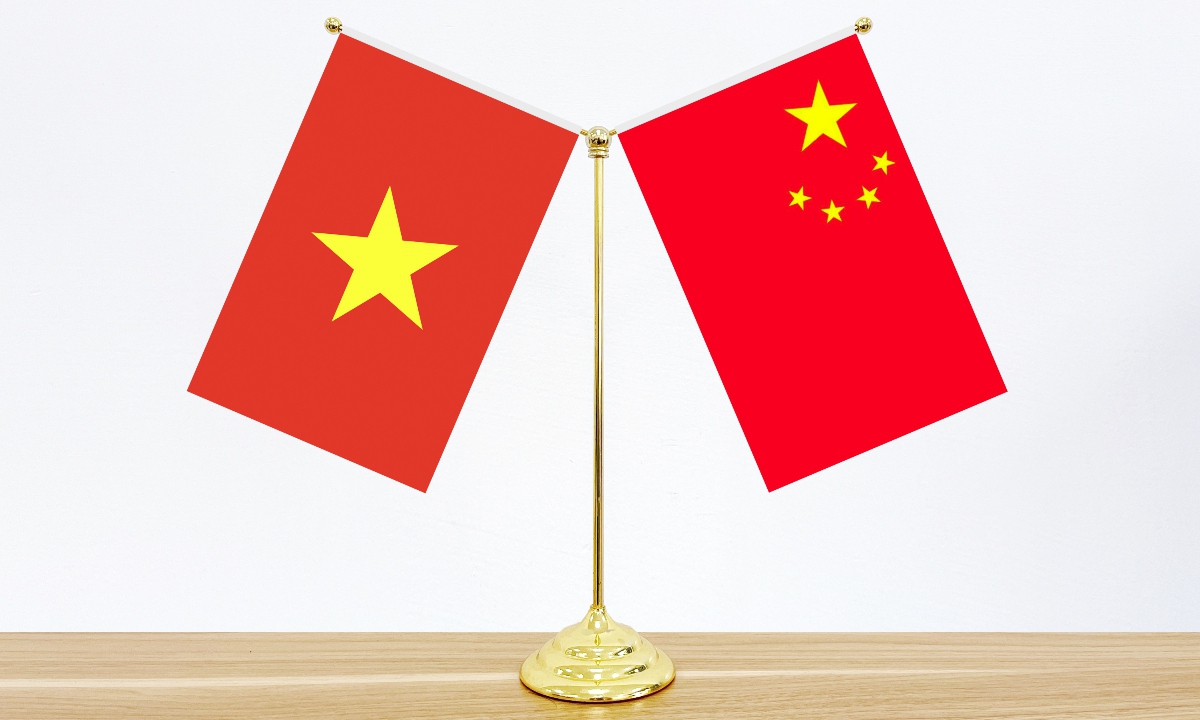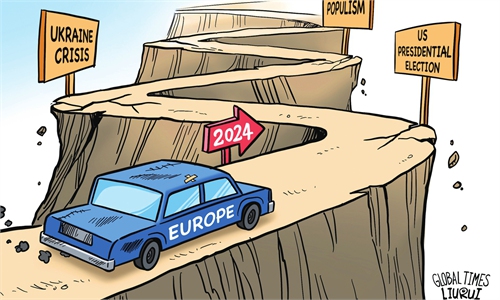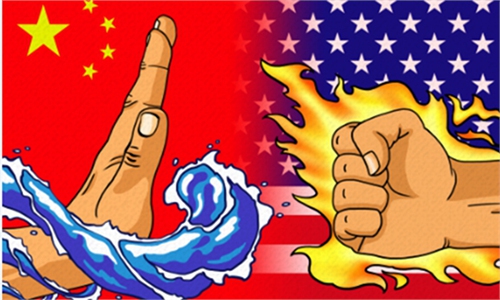The first of its kind: China and Vietnam officially establish the ‘3+3’ strategic dialogue mechanism

China Vietnam Photo: VCG
According to the website of the Chinese Ministry of Foreign Affairs, on Monday, China and Vietnam held the first meeting of the "3+3" strategic dialogue mechanism on diplomacy, defense and public security before the 16th meeting of the China-Vietnam Steering Committee for Bilateral Cooperation. The meeting was jointly chaired by officials from the two countries' foreign affairs, military, and public security departments. Vietnamese state media also confirmed the news, reporting that the meeting was held at the vice-ministerial level.
The China-Vietnam "3+3" strategic dialogue mechanism marks the first formal strategic dialogue mechanism between the two countries encompassing diplomacy, defense and public security. According to publicly available reports, China has established "2+2" dialogue mechanisms for foreign affairs and defense with countries such as Myanmar, Japan, South Korea, Pakistan, and Indonesia but has not yet established a "3+3" mechanism with any other nation. Vietnam, on the other hand, has strategic dialogues on foreign affairs (or political), defense, and security with the US, Russia, and South Korea, as well as foreign affairs (or security) and defense dialogues with Australia and France. However, these mechanisms are typically led by deputy foreign ministers with the participation of department-level officials from defense and security agencies, which do not constitute true "2+2" or "3+3" strategic dialogue mechanisms. Therefore, the establishment of the "3+3" mechanism between China and Vietnam is a pioneering effort for both countries, representing the first such international "3+3" mechanism on a global scale.
According to statements released by both China and Vietnam, the two sides had candid and in-depth exchanges of views during the meeting on their comprehensive strategic cooperation and international and regional issues of mutual concern, reaching broad consensus. They agreed that the establishment of this dialogue mechanism reflects the high level and strategic nature of China-Vietnam relations, provides a platform for enhancing strategic communication between the two countries, and sets an example for fostering political trust among neighboring nations. Both sides are committed to maintaining the strategic guidance of their top leadership, deepening institutionalized cooperation in strategic areas such as diplomacy, defense, and public security, and continuously improving their political-security collaboration and multilateral coordination. These efforts aim to advance the building of China-Vietnam community with a shared future, contributing to peace, stability, cooperation, and development in the region and beyond.
Currently, the world is experiencing intertwined upheavals and is at a new crossroads, with countries facing new risks and challenges to their stable development. The strategic nature of China-Vietnam relations has been continuously enhanced, evolving from the clear 16-character guideline, the spirit of the "Four Goods," and building a comprehensive strategic partnership of cooperation, to constructing a community with a shared future that carries strategic significance. The key to China and Vietnam taking the step to establish the "3+3" mechanism lies in the frequent high-level contacts and the deepening political mutual trust between the two countries.
After General Secretary Xi Jinping's visit to Vietnam last year, he invited General Secretary of the CPV Central Committee and then Vietnamese president To Lam for his first visit to China this year. Xi also met with several visiting Vietnamese leaders, including Lương Cường, the then Member of the Political Bureau and Permanent Member of the Secretariat of the CPV Central Committee who later became the new president of Vietnam, and Vietnamese Prime Minister Pham Minh Chinh. Premier Li Qiang visited Vietnam in October.
In the joint statements issued during the visits of To Lam to China and Premier Li to Vietnam, both sides emphasized the need to strengthen institutional cooperation in strategic areas such as diplomacy, defense, and public security. Since the beginning of this year, there has been close cooperation between the defense and public security departments of China and Vietnam. Vice Chairman of China's Central Military Commission General Zhang Youxia visited Vietnam, defense ministers from China and Vietnam held the eighth border defense friendship exchange, and the public security departments of both countries held a joint working group meeting on political security. Police personnel from China and Vietnam concluded joint counter-terrorism training in August. This fully demonstrates that the "3+3" mechanism is supported and promoted by the high-level leadership of both communist parties and countries, is based on the continuous deepening of cooperation between key departments, and is a concrete practice of jointly building a community with a shared future, which is both logical and a natural progression.
If we analyze from the perspective of the development processes of China and Vietnam, China has embarked on a new journey toward building a modern socialist country. The Third Plenary Session of the 20th Central Committee of the Communist Party of China has introduced over 300 major reform measures, providing strong momentum for advancing Chinese modernization. After To Lam was elected general secretary of the CPV Central Committee, he proposed a vision for a "new era of development" for the Vietnamese Party and state, actively preparing for the 14th National Party Congress in 2026.
In the face of the responsibilities of reform, stability, and development, both the CPC and the CPV, as well as both China and Vietnam, share a baseline thinking of being vigilant in times of peace and embracing risk awareness. The CPC believes it faces "four major tests": the test of governance, the test of reform and opening-up, the test of the market economy, and the test of the external environment. The CPV emphasizes the need to guard against "four major crises": lagging economic development, deviation from the socialist direction, corruption, and the crisis of peaceful evolution. Against this backdrop, establishing a "3+3" mechanism to strengthen strategic communication and cooperation is beneficial for both China and Vietnam to work hand in hand and move forward together on their respective journeys of socialist endeavors.
The author is a foreign affairs commentator. opinion@globaltimes.com.cn



